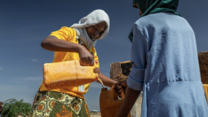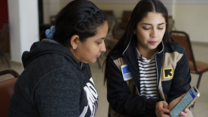A primary objective of IRC primary healthcare and environmental health programs is to strengthen collaboration between users and service providers to enhance the quality of services delivered. IRC health programs seek to give voice to the needs and concerns of communities on the delivery and quality of health services and support greater responsiveness from the health system. One way to promote this kind of user participation is through social accountability activities.
The purpose of this guidance note is to review mechanisms for social accountability in health programs, provide guidance on deciding whether it is feasible to implement such activities, and outline the process of designing, implementing, and monitoring them.
Implementing social accountability activities
- Identify and prioritize the governance concerns constraining the delivery of health and WASH services
- Analyze the context and consult with key stakeholders
- Choose the intervention to address identified concerns, taking into consideration the constraints and opportunities from context analysis and internal capacity
- Develop a monitoring and evaluation plan to ensure documentation of best practices
- Implement and institutionalize the intervention



